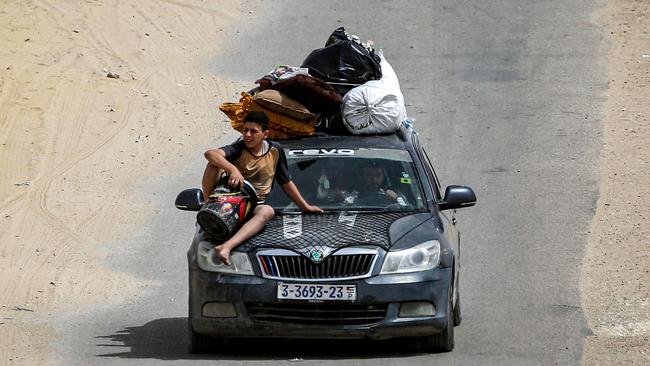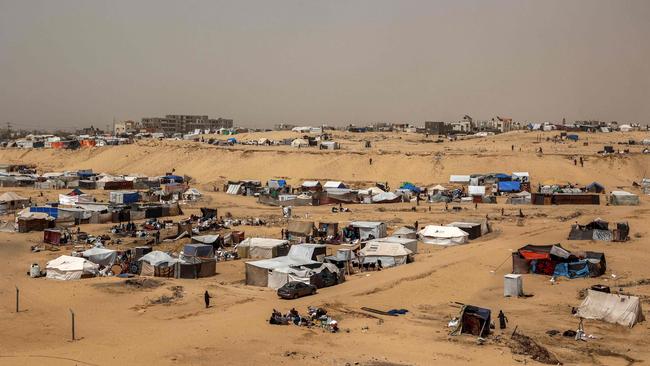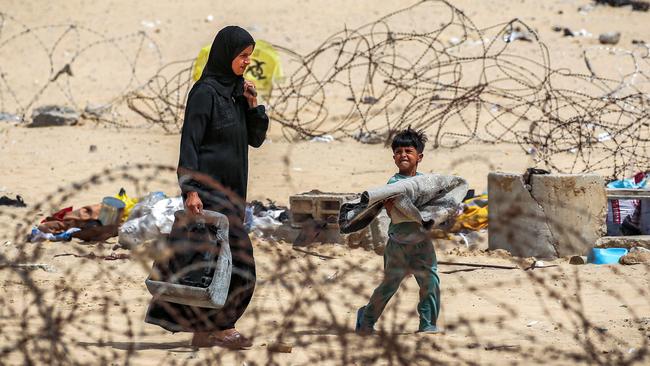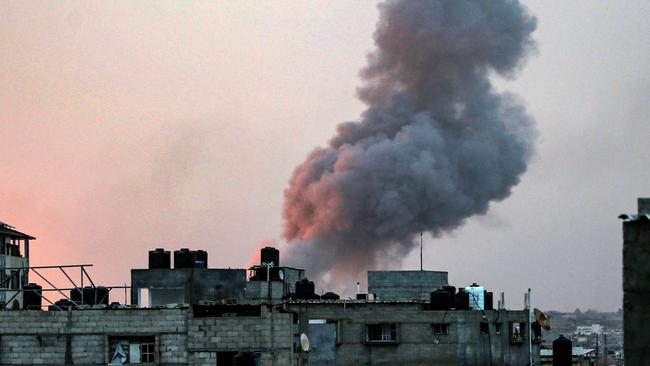Nowhere to turn as bombs fall on Rafah
Intense Israeli airstrikes raged across Rafah and other parts of Gaza, as the UN warned an outright invasion of the crowded southern border city risked an ‘epic’ disaster.

Intense Israeli airstrikes raged across Rafah and other parts of Gaza, as the UN warned an outright invasion of the crowded southern border city risked an “epic” disaster.
The strikes shut a key humanitarian aid crossing from Egypt and traffic was suspended through another, while at least 21 people were killed in attacks in central Gaza.
The Israel Defence Forces said overnight on Saturday that its troops were fighting “armed terrorists” at the crossing and had found “numerous underground tunnel shafts” and “we have eliminated dozens of terrorists in eastern Rafah”, where 1.4 million have been sheltering.
Gaza’s civil defence agency said two doctors were killed on Sunday in the central town of Deir al-Balah, while these was intense clashes and heavy gunfire from Israeli helicopters near Gaza City.
Witnesses said Israel had carried out strikes in Rafah near the crossing with Egypt on Saturday, with smoke seen rising over the city.
Israeli troops defied international opposition last week and entered eastern areas of the city, effectively shutting a key aid crossing and suspending traffic through another.
Israel expanded an evacuation order for eastern Rafah, after saying 300,000 people had fled the city since the army urged people to leave earlier in the week.

Residents piled water tanks, mattresses and other belongings onto vehicles and prepared to flee again.
“We don’t know where to go,” said Farid Abu Eida, who was preparing to leave Rafah, having already been displaced there from Gaza City in the north.
“There is no place left in Gaza that is safe or not overcrowded.”
Journalists also began dismantling their tents and packing their equipment to leave the city.
“Where to? After Rafah there is expulsion, not displacement. This is the question that Palestinians ask, what next?” said journalist Nabil Diab.
The evacuation order on Saturday told residents to go to the “humanitarian zone” of al-Mawasi, on the coast northwest of Rafah. But that area has “extremely limited access to clean drinking water, latrines” and other basic services, said Sylvain Groulx of Doctors Without Borders.
EU chief Charles Michel said on social media that Rafah civilians were being ordered to “unsafe zones”, denouncing it as “unacceptable”.
UN secretary-general Antonio Guterres said Gaza risked an “epic humanitarian disaster” if Israel launched a full-scale ground operation in Rafah.

His warning came after the UN General Assembly voted overwhelmingly to grant Palestinians additional rights in the global body and backed their drive for full membership, vetoed by Washington at the Security Council.
US deputy ambassador to the UN Robert Wood said that while “our vote does not reflect opposition to Palestinian statehood … it remains the US view that unilateral measures at the UN and on the ground will not advance this goal”.
The resolution gives the Palestinians “additional rights and privileges”.
Richard Gowan, an analyst with the International Crisis Group, said the move could create “a sort of diplomatic doom loop, with the assembly repeatedly calling for the council to grant Palestine membership and the US vetoing it”.
The resolution was approved by a vote of 143-9 with 25 nations abstaining. “The symbolism is what matters,” Mr Gowan said. “This resolution is a very clear signal to Israel and the US that it is time to take Palestinian statehood seriously.”

While mediation efforts towards a truce and hostage release appeared to stall, Hamas said a hostage who appeared in a video it released earlier on Saturday had died from wounds suffered in an Israeli strike.
The Ezzedine al-Qassam Brigades said British-Israeli man Nadav Popplewell had been wounded in a strike a month ago and died “because he did not receive intensive medical care because the enemy has destroyed the Gaza Strip’s hospitals”.
Mr Popplewell was kidnapped from his home during the October 7 massacre along with his mother, Hanna Peri, who was released during a one-week truce in November. Popplewell’s older brother was killed in the attack.
AFP


